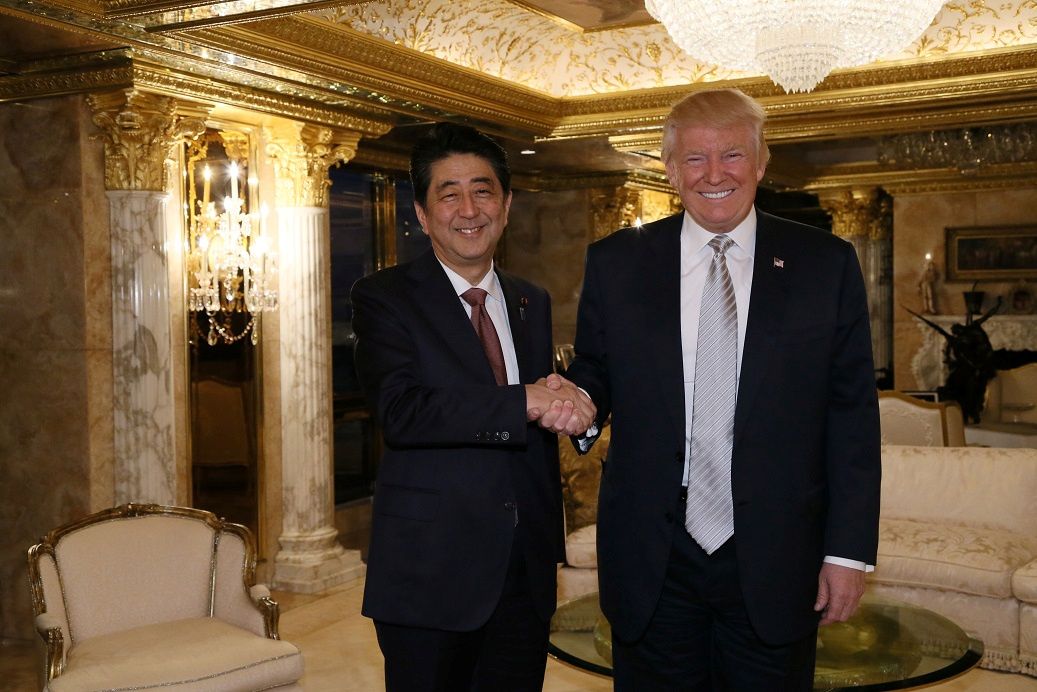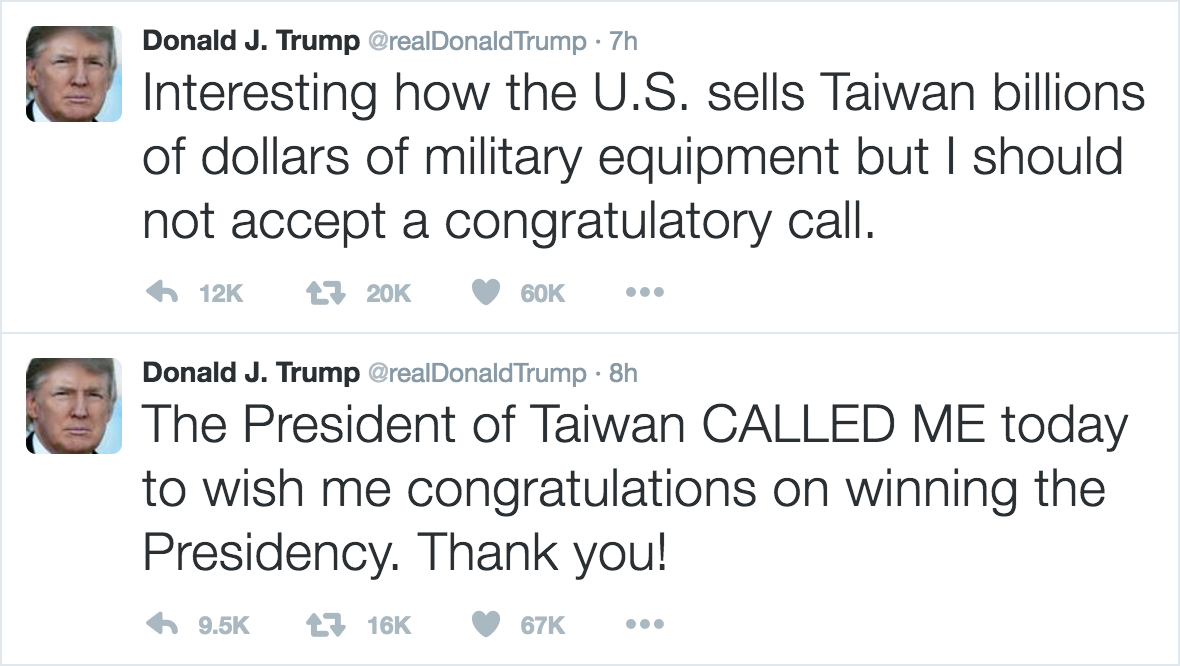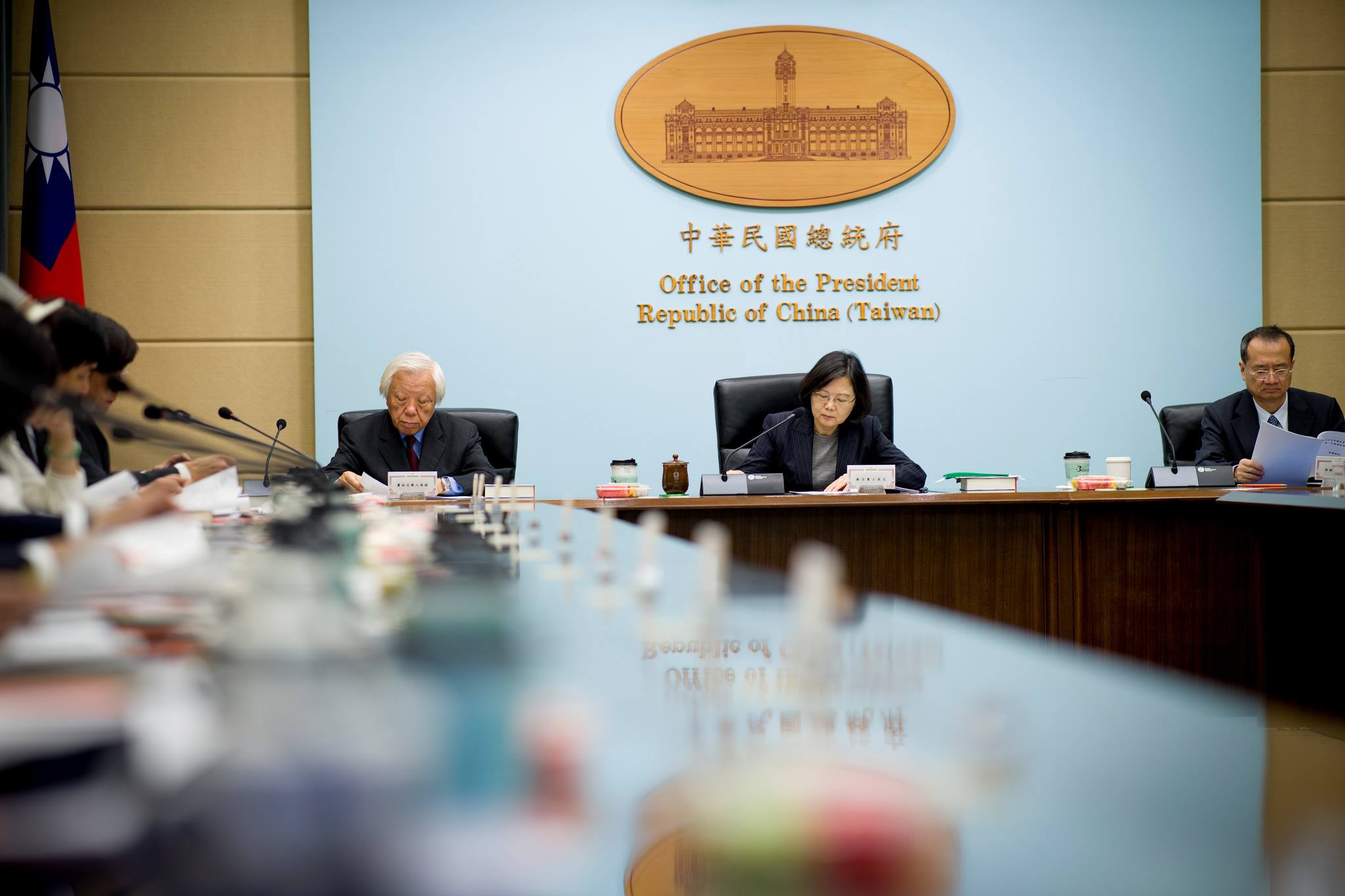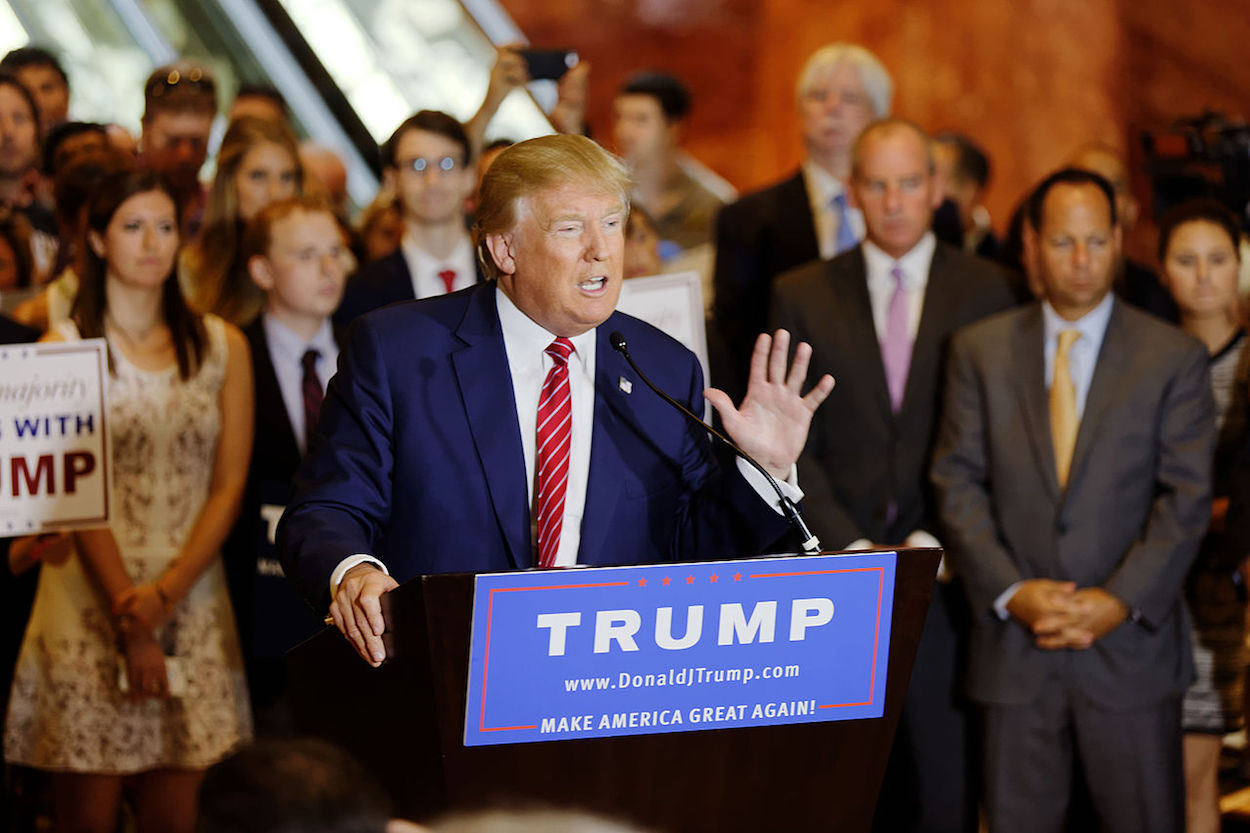by Brian Hioe
語言:
English
Photo Credit: VOA
A SIGH OF relief was the response for many after a high profile telephone call between American president-elect Donald Trump and Taiwanese president Tsai Ing-Wen. Namely, with claims by Trump that American allies Japan and South Korea were freeloading off of the United States and that consequently he would seek to withdraw American troops from bases in the Asia Pacific, it was feared that Trump would scale back already weak American support for Taiwan. This would no doubt strengthen China’s position in continuing to encroach on Taiwanese political and economic sovereignty. Worse yet, given Trump’s numerous unorthodox political positions as a presidential candidate, it was feared that Trump might even abandon Taiwan to China altogether, something many perceive as spelling doom for Taiwan’s de facto independence.
As with many things Donald Trump, the phone call between Tsai and Trump was a bizarre one. The phone call was prearranged, although it was Tsai that called Trump and very likely Tsai who approached Trump in the position of supplicant. This fits with the pattern of Asia Pacific leaders making overtures to Trump since his election victory, for fear that Trump’s actions as president might fundamentally overturn the post-war order of the Asia Pacific region through living up to campaign promises to conduct a troop withdrawal from the Asia Pacific. Past talks between Trump and Asian leaders include a meeting with Trump by Japanese prime minister Shinzo Abe and a phone call between Trump and South Korean president Park Geun-hye, both of which took place earlier this month.
 Japanese prime minister Shinzo Abe meeting with Trump. Photo credit: Reuters/Cabinet Public Relations Office
Japanese prime minister Shinzo Abe meeting with Trump. Photo credit: Reuters/Cabinet Public Relations Office
After meetings with Abe and Park, Trump seemed to reverse statements made during campaign season to suggest his presidential administration would entail continue support for Japan and South Korea. This was no different of his phone call with Tsai, after which Trump took to Twitter to comment that it was bizarre for China to complain about his phone call with Tsai when Taiwan buys billions of dollars worth of American military equipment. Although Trump also claimed in his Tweets that this was a mere congratulatory phone call from Tsai, some take this as Trump indicating a more proactive stance in favor of Taiwan.
Nevertheless, whereas Trump’s discussions with Abe and Park were reassuring for many, suggesting that Trump would not break from Asia policy in as drastic a way as he seemed to suggest during election campaigning, much hand-wringing has ensued from much of the American foreign policy establishment after his phone call with Tsai. Trump’s phone call with Tsai is the first time an American president or president-elect has spoken with a president of Taiwan in over thirty years, as the first time such a phone call has occurred since diplomatic relations between America and Taiwan in 1979.
Some have suggested that Trump may not understand the sensitivity of the issue, hence why little thought seems to have gone into this phone call. In particular, it is thought that Trump’s actions are unnecessarily disruptive of American relations with China because of the sensitive issue of Taiwan’s sovereignty to China. Past American presidents were not even allowed to refer to Taiwan by name, but Trump would be happy to not only to refer to Taiwan by name, but to blast this out there for all the world to see on Twitter.
 Trump’s Tweets regarding his phone call with Tsai
Trump’s Tweets regarding his phone call with Tsai
Indeed, Trump’s statements on Twitter after his phone call with Tsai certainly do stand to provoke China, and this marks the first overt confrontation between the Trump presidency and China. How this is handled going forward stands to affect much of Trump’s future China policy.
It seems likely that Trump does not know very much about Taiwan. Among the few times during which Trump has referred to Taiwan during election campaigning, Trump had previously accused Taiwan alongside Mexico of being an economic drain on the United States. One wonders as to whether Trump mostly had China in mind with such statements, rather than Taiwan, seeing as claims that China was cheating the global economic system to hurt the United States were a recurring leitmotif of his campaign.
But in general, Trump’s worldview seems to divide the world into countries which are an economic drain on the United States and countries which are economically beneficial to the US. The former are seen as enemies, to be targeted at will, whereas only the latter are possible allies. Yet while such a worldview suggests that countries with free trade agreements with the United States might continue to profit from security alliances with America, Trump is also opposed to free trade agreements such as the America-led TPP, which would have cemented security alliance between America and the Asia Pacific countries that signed onto it.
If Trump previously lashed out at South Korea and Japan as drains on American resources in suggesting American troop withdrawal from the Asia Pacific, as befits this worldview, that Trump now refers to US-Taiwan arms sales as a basis of stronger ties between Taiwan and America may indicate that Trump’s view of Taiwan has shifted to seeing Taiwan as an ally. It is also not altogether surprising that Trump might take a more pro-active stance on Taiwan when his incoming administration will likely include individuals such as John Bolton, a possible secretary of state, who has a reputation as a hawk. Bolton has in many times in the past called for stronger ties between Taiwan and the US as a way to take a stronger stance against China.
 Tsai Ing-Wen. Photo credit: Presidential Office
Tsai Ing-Wen. Photo credit: Presidential Office
It is hypocritical, to say the least, for there to be much hand-wringing from those who claim to otherwise be committed to American freedoms as a reaction to the possibility of Trump taking a more proactive stance in favor of Taiwan. Without falling into old refrains of free democratic Taiwan against godless Communist China, it is true that Taiwan is free and democratic country.
It is reflective of to what extent America’s claim to stand with its allies on the basis of shared values of democracy and freedom is hypocritical that the reaction from much of the American foreign policy establishment after Trump’s phone call with Tsai has largely been panic that Trump will destabilize America delicate balancing act with China. Such claims only disguise that America’s first concerns are always with its own interests. At best, such claims are probably just self-deluding ideology for America to assuage any twangs of guilty conscience about its actions abroad.
Yet, of course, neither does this mean that Trump is principled in standing on the side of Taiwan, or that Trump can be counted on to maintain America’s security relationship with Taiwan. Very likely, it is true that Trump only took a stance vaguely in favor of Taiwan after his phone call with Tsai because he does not understand its full implications.
It could be that Donald Trump is actually proving to be surprisingly pliable material for experienced politicians such as Tsai or Abe to manipulate. As has been noted many times, Trump has noted tendency of seeming to shift policy stances depending on the last person he talked to, in line with his desire to ingratiate himself with elites and accrue respectability as the probable motivating factors behind his presidential run. Indeed, Trump’s Tweets after his phone call with Tsai seem to indicate that he was flattered by the phone call, perhaps indicating that she had successfully tickled his ego enough during the course of their phone call to influence him. Tsai is, of course, a far more experienced politician than Trump, who has no political experience whatsoever.
 Photo credit: Michael Vadon/CC
Photo credit: Michael Vadon/CC
But if Trump has thus far proved pliable matter for Asian politicians such as Tsai or Abe, Trump could also unpredictably turn on them. Trump has been anything but consistent in his positions to date, with foreign policies claims oscillating wildly between protectionist isolationism and outright expansionism. Trump’s recent reversals on Asia policy are in themselves indicative of his tendency to rapidly and suddenly change positions. It may be a futile effort trying to make anything rational out of his these unpredictable swings. Fears that Trump might affect American foreign policy through poorly thought out, spur-of-the-moment Tweets targeting China, Russia, or other countries has already been demonstrated through present events.
Celebrations in Taiwan after Trump’s phone call with Tsai are premature and, in fact, deluded. Altogether too many things remain uncertain about which direction the Trump presidency intends to take American foreign policy and this has not changed regarding the question of what stances it intends to take regarding Taiwan, if it has any thought out policy at all.
But this may be reflective of the historical tendency of the Taiwanese public to be too uncritical of America, instead hanging onto every single one of America’s words as though it were some message from on high. This returns all the way back to the democracy movement, when democracy activists sometimes directed their appeals exclusively to America in spite of the fact that, for decades, America was perfectly happy to abet military rule by the KMT and to leave Taiwan in the limbo of “strategic ambiguity” if it suited America’s geopolitical ends.
Seeing the Trump administration in a rosy lens, sometimes hand-in-hand with a sudden blindness to its racism and misogyny domestically, and assuming that the Trump administration has decided to act on behalf of Taiwan on the basis of a phone call and a few statements on social media would be no different. Much like the election victory of Donald Trump in America on promises to stand up for the American people against corporations, never mind that Trump’s corporate ties probably run deeper than any other presidential candidate in American history, this may be another case of people believing what they want to believe, and ignoring political reality as such.

